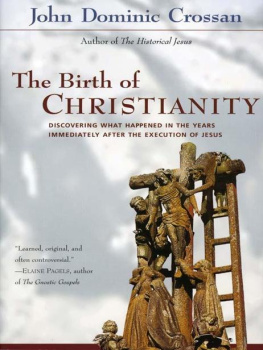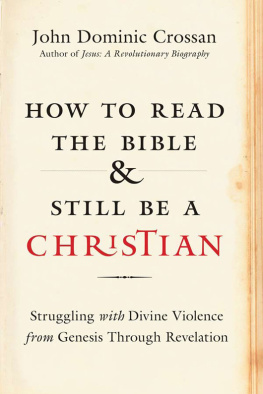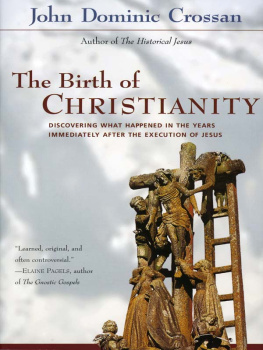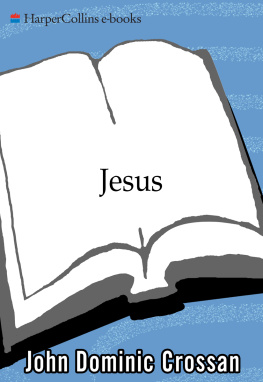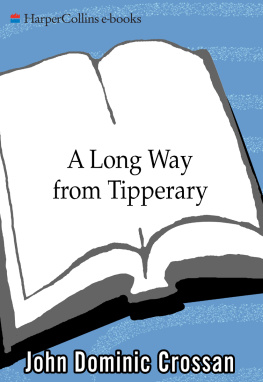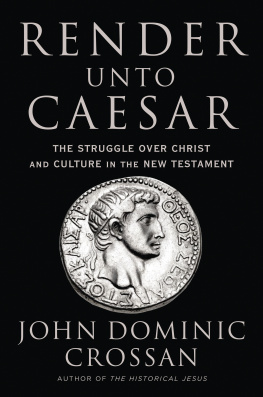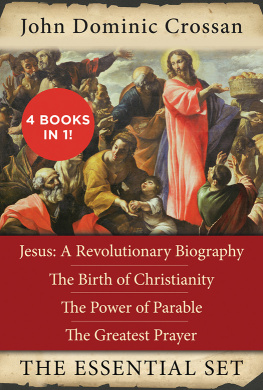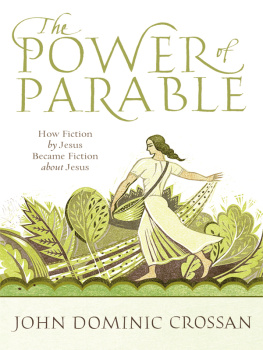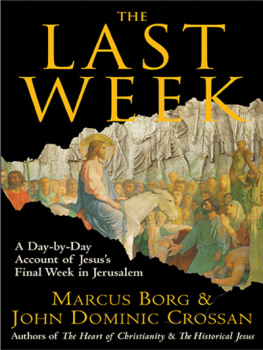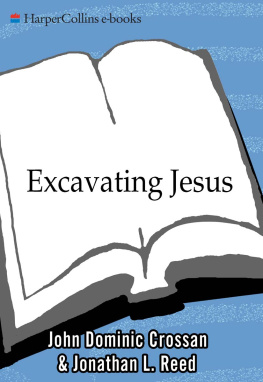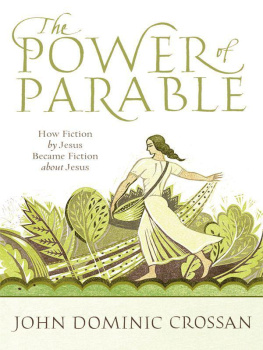Crossan - The Birth of Christianity
Here you can read online Crossan - The Birth of Christianity full text of the book (entire story) in english for free. Download pdf and epub, get meaning, cover and reviews about this ebook. year: 2010, publisher: HarperCollins e-books, genre: Religion. Description of the work, (preface) as well as reviews are available. Best literature library LitArk.com created for fans of good reading and offers a wide selection of genres:
Romance novel
Science fiction
Adventure
Detective
Science
History
Home and family
Prose
Art
Politics
Computer
Non-fiction
Religion
Business
Children
Humor
Choose a favorite category and find really read worthwhile books. Enjoy immersion in the world of imagination, feel the emotions of the characters or learn something new for yourself, make an fascinating discovery.
- Book:The Birth of Christianity
- Author:
- Publisher:HarperCollins e-books
- Genre:
- Year:2010
- Rating:4 / 5
- Favourites:Add to favourites
- Your mark:
The Birth of Christianity: summary, description and annotation
We offer to read an annotation, description, summary or preface (depends on what the author of the book "The Birth of Christianity" wrote himself). If you haven't found the necessary information about the book — write in the comments, we will try to find it.
In this national bestseller, John Dominic Crossan, the worlds leading expert on the historical Jesus, reveals how Christianity emerged in the period following Jesus death. Taking an interdisciplinary approach, Crossan shines new light on the theological and cultural contexts from which the Christian church arose. He argues powerfully that Christianity would have happened with or without Paul and contends that Jesus resurrection meant something vastly different for his early followers than it does for many traditional Christians today--what mattered was Christina origins finally illuminates the mysterious period that set Western religious history in its decisive course.
Amazon.com ReviewJohn Dominic Crossan is the leading contemporary scholar on the historical Jesus, which means that his vocation is to look behind, around, and through Christs resurrection, toward the goal of establishing what can be known about the life of Jesus of Nazareth.
His search for the historical Jesus, however, takes place in the larger context of the life of the church. Among the goals of The Birth of Christianity is to teach readers how our habits of worship have created false gods. To that end, Crossan attempts to unearth the religions earliest forms. What did Christianity look like, Crossan asks, between the crucifixion and the conversion of Paul? And what might Christianity look like today had Saul never set off toward Damascus?
Crossans conclusions dont come from newly discovered documents; they come from freshly-minted academic methodologies. He uses anthropology, history, and archaeology to construct his arguments about the essential nature of both Jesus religion and Pauls. The 25-cent summary of his conclusion is that Jesus did not recognize the dualism between spirit and flesh that formed the basis of Pauls apocalyptic Christianity. In other words, Jesus was more Jewish than Paul.
The ramifications of this argument are huge. Crossan says much of Christian worship--and many of the worlds injustices--are based on the dualistic Christ that Paul preached. Though Crossan doesnt bully readers into accepting his conclusions, he does press hard for them to situate their own beliefs in relation to his interpretations of Jesus and Paul. At every point in the evolution of his argument, he asks readers questions such as How do you understand a human being? and What is the character of your God? Then he proceeds to answer these questions himself. Finally, he tells readers what he thinks these answers mean.
Its an incredibly civilized style of argument--both spiritually and intellectually respectful and always rhetorically engaging. Though The Birth of Christianity weighs in at almost 600 pages of text, youll probably want to read every word. And after that, youll probably be hungry for more.
From Library JournalIn his latest book, Crossan (New Testament, DePaul Univ.) asks, What in that original interaction [between Jesus and his first companions] made continuation from before to after [the Crucifixion] possible or even inevitable? As with his massive The Historical Jesus: The Life of a Mediterranean Peasant (LJ 2/1/92), Crossan incorporates crosscultural anthropology, literary analysis, and the history and archaeology of Roman Judea in the first century C.E. to answer his pivotal question. Reading early Christian texts against a background he rigorously establishes in the first half of the book, Crossan teases out a picture of infant Christianity. Though he may not convince all readers?his case rests heavily upon the priority and independence of questionable documents?Crossans work cannot be rejected out of hand. Recommended for seminary and academic libraries.?Craig W. Beard, Univ. of Alabama at Birmingham Lib.
Copyright 1998 Reed Business Information, Inc.
Crossan: author's other books
Who wrote The Birth of Christianity? Find out the surname, the name of the author of the book and a list of all author's works by series.

